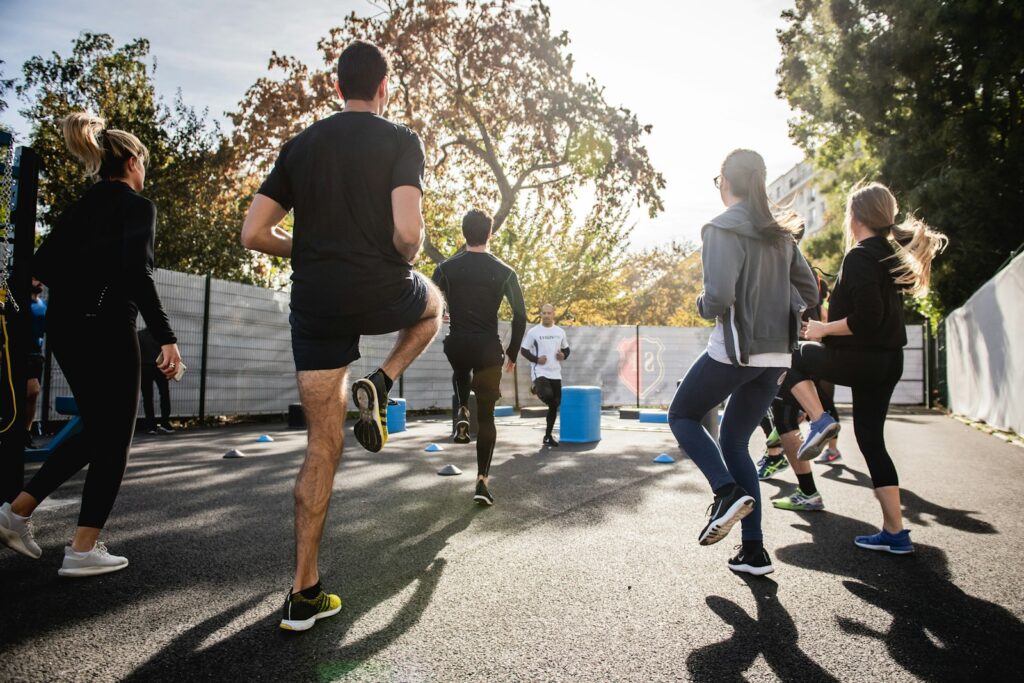
Subscribe to our newsletter
Enter your email address below and subscribe to our newsletter

By Dianna Graveman
I call it my “Summer of Bliss.” Two years ago, in 2022, life was pleasant and quiet. My then 33-year-old daughter was in cancer remission. My 93-year-old dad, while declining rapidly, could still be left alone for an hour or two. The pandemic had receded. And I had decided to finally concentrate on my own health and fitness.
Turning 65 was the catalyst. Or maybe it was the advice of a primary care physician who performed my physical exam at the start of that summer. Red lines in my lab report flagged high blood pressure, high cholesterol, and high glucose. I was achy, lethargic, and glum. Caregiving had taken its toll.
Previous doctors had advised weight loss and exercise; after all, I’d been neglecting my health for a long time. I had always just nodded along, making the right noises and pretending (for both the doctor’s benefit and mine) that I’d try harder. Then I’d take a few daily walks and pass up that second helping for a few meals, but soon, I’d be right back to where I’d started.
This time was different.
Upon reflection, I believe I know why. This doctor didn’t tell me to lose weight. He didn’t make any reference to my appearance at all. In fact, rather than feeling “old” when I left his office as I did after most physical exams, I left with a pep in my step—he had insisted only that I adopt an anti-inflammatory diet and begin a regular exercise routine involving cardio and strength training. He wanted to see me in six weeks, and he expected to see results.
I took the cardio seriously (even if it was only brisk walking at first), but I was more skeptical of the strength training. Why bother at my age? Turns out there are a lot of reasons: to improve balance, reduce the risk of falls and broken bones, and increase the possibility of being able to live independently in later years. After watching my poor dad suffer multiple falls as he inched into his eighties, I was willing to try anything to avoid the same fate.
As a brand-new Medicare member, I had free access to a local gym. I enrolled but mostly walked outdoors and exercised at home. I researched plant-based diets and anti-inflammatory foods. I installed an app on my phone to track my calories, protein, and nutrient intake. And although it was tedious at first, I logged everything I ate.
After six weeks, all the red lines on my lab report were gone. My blood pressure was great. I felt wonderful.
But as usually happens when things are going a little too well, those easy-breezy days were just the calm before the storm.
Subsequent months brought a more marked decline for my dad and a need for round-the-clock care. Family emergencies and health crises piled up, and my stress level soared. Then in the fall, my dad succumbed to his illnesses. Heartbroken, I lost sight of my own well-being. Once again, I became lethargic. I gave up. It’s hard to eat mindfully when you have no appetite. My short-lived attempt at late-in-life fitness had fizzled. I felt like a failure and gave up . . . temporarily.
Now, several months later, I have begun to start over. I can’t recreate my summer of bliss, of course. I was lucky to have those three months of calm before the storm. But what I’ve learned is that sometimes life will throw us off course, and sometimes we lose ground, but we can pick ourselves back up again if we give ourselves grace. In my case, I lost a lot of the physical progress I’d made. I’m not as healthy as I was and not nearly as healthy as I would have been had I continued on the fitness journey I started two years ago. And because I lost that progress, some days it’s hard to stay motivated. Taking large steps backward makes it hard to move forward. But now, when I have a bad day and overeat or fail to move my body, I tell myself: Forget about it. Focus on tomorrow. And then I get up the next day and start again—it’s never too late. I got this.